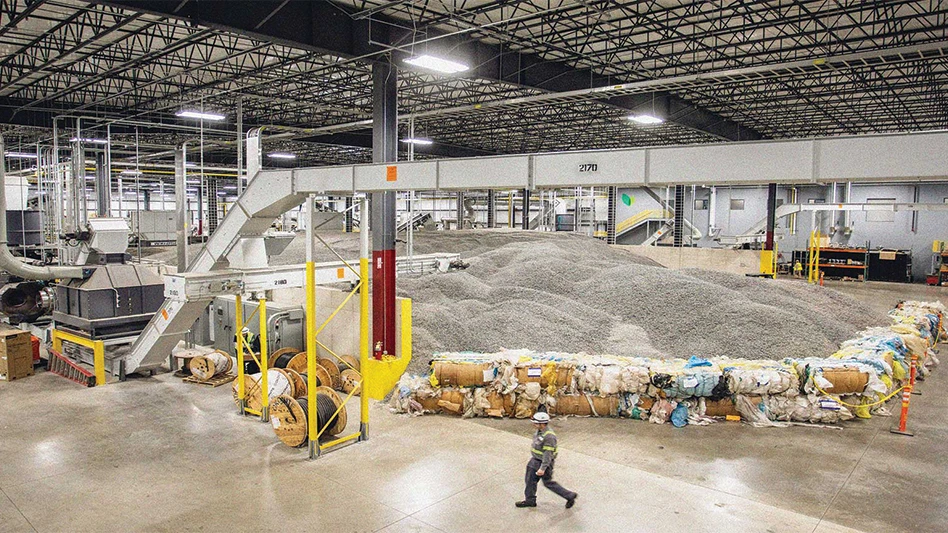Mondi Group, a Vienna-based packaging and paper company, led Project Proof, a pioneer project facilitated by the Ellen MacArthur Foundation (EMF), Isle of Wight, U.K. The project has created a proof-of-concept prototype: a flexible plastic pouch incorporating a minimum of 20 percent postconsumer plastic originating from mixed household waste. The pouch is suitable for packaging household products, such as detergent, according to Mondi.
Project Proof is part of Mondi’s commitment to the EMF’s New Plastics Economy Initiative. It is focused on designing products in line with circular economy principles and has shown that it is possible to use unclean and raw postconsumer recycled content to create new flexible packaging. Mondi says it will now develop the prototype further to ensure it can be rolled out as a commercially viable product for its multinational fast-moving consumer goods customers. This will support Mondi’s work as a signatory of the New Plastics Economy Commitment to ensure a minimum of 25 percent of postconsumer scrap is incorporated across all its flexible plastic packaging where food contact regulations allow by 2025.
CEO of Mondi Consumer Packaging Georg Kasperkovitz says, “We believe that working in partnership is key to finding a solution for plastic waste by driving innovation and broad systemic change throughout the plastics value chain with a focus on replacing, reducing and recycling.”
Here are some more details about Project Proof, according to the company:
- The goal was to examine whether the two new flexible plastic packaging products could replace multilayer laminates, which would increase recyclability.
- The project successfully produced a prototype made with a minimum of 20 percent postconsumer scrap in the form of a flexible pouch for nonfood applications, such as laundry or dishwasher detergent.
- The long-life food pouches included an aluminum barrier, which could create problems in recycling. New materials are being tested that do not include a problematic layer.
Get curated news on YOUR industry.
Enter your email to receive our newsletters.
Latest from Recycling Today
- Construction, auto sectors show mixed signals
- Politics in Turkey threaten recycled steel outlet
- Toppoint Holdings expands chassis fleet
- Lego creates miniature tire recycling market
- Lux Research webinar examines chemical recycling timetables
- Plastics producer tracks pulse of wire recycling market
- Republic Services, Blue Polymers open Indianapolis recycling complex
- Altilium produces EV battery cells using recycled materials






